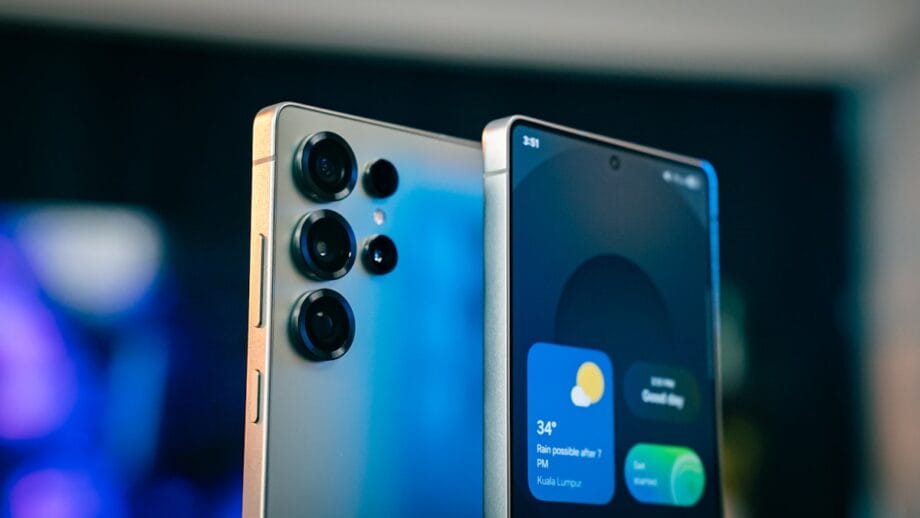BytePe Revolutionizes Smartphone Ownership in India with Innovative EMI Solutions
As consumers in India prepare to acquire new flagship smartphones, a crucial consideration is whether the device can be financed through easy monthly installments (EMIs) extending over 12 months or longer.
This purchasing strategy has substantially benefitted smartphone brands and associated ecosystem players, culminating in a remarkable 96.4 percent growth in the segment of premium smartphones, according to recent data from the International Data Corporation (IDC).
While avenues for purchasing flagship smartphones via accessible financing exist, a nascent startup named BytePe—co-founded by a former executive from Flipkart—intends to further diminish the cost of EMIs. BytePe is pioneering options for upgrading or retaining smartphones, significantly trimming expenses compared to conventional EMI arrangements.
When you acquire a product today, you generally pay its full price upfront. However, a year or two later, if you cease using it, there remains a considerable residual value in that product. We have developed a proprietary model that forecasts the lifecycle value of a product.
This model integrates seamlessly with existing financing tools, such as credit cards or our dedicated lending framework, stated Jayant Jha, Founder & CEO of BytePe, expounding on the rationale behind India’s inaugural subscription-based smartphone service.
Upon visiting our platform and selecting a product, we curate a personalized EMI framework or financing model tailored to your preferences. Typically, our financing offers are 40-50 percent more economical than standard EMI options, thereby enhancing product accessibility and alleviating financial pressure while ultimately facilitating lifestyle upgrades, he elaborated.
Launched in September, BytePe was spearheaded by Jha, who previously held the position of Senior Director within the Recommerce unit at Walmart’s Flipkart. He also co-founded and served as CEO of Yaantra, which was acquired by the e-commerce giant in 2022.
“The issue of affordability remains unaddressed,” Jha remarked in an interview, indicating that, despite the popularity of programs such as no-cost EMIs and trade-in offers, the financial burden of owning premium smartphones in India remains steep.
From Jha’s standpoint, the challenge of affording high-end smartphones represents a significant opportunity—an understanding rooted in his extensive experience at Flipkart and as CEO of Yantra, where he honed his skills in assessing product lifecycle value.
“We do not operate as a smartphone rental service,” Jha firmly clarified, positioning BytePe as a platform advocating smart ownership.
Jha emphasized addressing the affordability conundrum for premium smartphones through BytePe, which permits consumers to pay solely for the value they utilize. This model offers unparalleled flexibility, allowing consumers to upgrade or exchange their devices at their convenience.
They also possess the option to retain the product permanently after a designated period, with EMI costs potentially slashed by up to 55 percent. BytePe’s model harmonizes flawlessly with existing financing modalities, encompassing credit cards and the broader lending landscape.
BytePe enhances affordability in EMIs while providing users the flexibility to exchange or upgrade their smartphones at will. Jha noted that approximately 70 to 80 percent of premium product consumption in India transpires through EMIs.
“Should you enter a Croma store with the intent to purchase the iPhone 17, you would likely select a 12-month EMI plan, culminating in a monthly payment of around Rs 7,400 for device ownership. In contrast, BytePe proposes an EMI of merely Rs 3,899 monthly.
Following 12 months, you can opt to return the device and upgrade to the subsequent iPhone upon its release or continue utilizing the current device,” Jha elucidated.
In the event of opting to return the device, BytePe ensures collection from your location. Conversely, should you wish to retain it, continued payments of Rs 3,500 per month apply.
Additionally, after the initial 12-month period, if you desire to keep the device, you can settle the remaining balance—typically spanning another 12 months at Rs 3,500—thereby securing ownership.
This arrangement effectively reduces the EMI from Rs 7,400 to approximately 55 percent, with consumers paying only Rs 3,500 per month for the iPhone 17,” Jha explained.
Looking ahead, Jha indicated plans to unveil a two-year plan, extending the smartphone upgrade cycle to between 18 to 24 months, promising potential savings of up to 45 percent for consumers.
“We are pioneering a smart ownership model. It’s not merely rental or leasing; it’s about owning smarter, at a significantly reduced cost.” Each smartphone available through BytePe comes with the added benefit of 100 percent damage protection alongside the standard brand warranty.
Prominent brands like Apple and Samsung are vigorously pursuing affordability strategies to bolster sales of their premium smartphones in India, positioning themselves as the dominant players in this premium flagship sector.
“I don’t perceive reluctance on their part,” Jha commented when discussing the hesitance of leading smartphone brands to adopt a business model akin to that of BytePe. This sector ultimately necessitates a highly coordinated approach. Selling to consumers involves underwriting, which requires solid financing mechanisms.
Brands also grapple with the fate of products once they are returned. The secondary ecosystem, where upfront value is guaranteed, demands substantial capability—one that we possess, allowing us to efficiently weave all components together.
Currently, BytePe exclusively offers premium smartphones from brands such as Apple and Samsung, but plans to broaden its product offerings to encompass accessories, high-end watches from Seiko, and additional items in due course.
Although Jha hinted at potential collaborations with various brands, specific names were not disclosed. For instance, the latest iPhone 17 is available through BytePe for Rs 3,899 per month, while the iPhone 16 can be acquired for Rs 2,787 and the AirPods 4 for Rs 877 per month.
Jha anticipates BytePe’s success alongside the evolving preferences of Indian consumers gravitating toward premium flagship smartphones. However, he acknowledges that several competitors are also striving to make high-end smartphones more affordable via distinctive business models.
For example, Everphone in Germany markets Apple iPhones, Samsung Galaxy devices, Google Pixels, and other tablets “as a service,” while in the UK, Raylo offers smartphone subscriptions, charging customers a monthly rate for leasing new or refurbished SIM-free devices.

“While these competitors may function similarly to us, their backend architectures diverge significantly. For instance, Raylo’s model does not incorporate ownership rights, whereas we provide consumers with that choice. The dynamic of the European market is disparate from that of India, where affordability remains a focal point,” Jha pointed out.
Since its beta launch in September, BytePe has already covered 15,000 PIN codes. When queried regarding the engagement from smaller towns, Jha remarked that it is premature to draw conclusions about regional behaviors, as additional data will be required over the upcoming months. The platform currently operates as a web-based service, with plans to launch a dedicated app within the current quarter.
Post-smartphones, Jha hinted that gaming could be BytePe’s next foray, with further categories anticipated in the subsequent financial year. The company currently operates with a team of 30 to 35 members, primarily based in Bangalore and Delhi.
Source link: Indianexpress.com.






